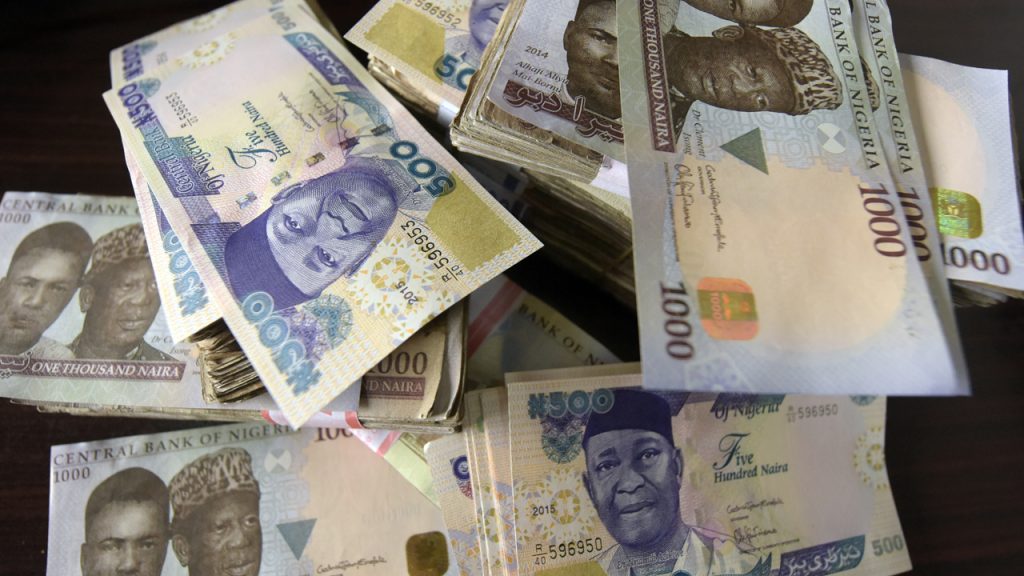Paragraph 1: Naira’s Performance and Influencing Factors
The Nigerian naira experienced a period of relative stability and marginal appreciation at the official Investors’ and Exporters’ (I&E) window during the reviewed week. Strengthening to N1,547/USD from N1,549/USD, the naira’s performance was largely attributed to the Central Bank of Nigeria’s (CBN) strategic interventions in the foreign exchange market. The CBN injected dollars into the market to address corporate demand pressures, a move that helped bolster the naira’s value. Furthermore, analysts pointed to the influx of foreign portfolio investments (FPIs) as another contributing factor. These investors brought in dollars to participate in the CBN’s Open Market Operation (OMO) auctions, further supporting the naira’s stability. While the official market witnessed these positive developments, the parallel (black) market saw a slight depreciation of the naira to N1,585/USD.
Paragraph 2: CBN’s Monetary Operations and Liquidity Management
The CBN’s OMO auction played a significant role in managing system liquidity. Aiming to absorb excess liquidity within the banking system, the CBN offered N600 billion across the 155-day and 204-day tenors. The auction witnessed robust investor interest, attracting a total subscription of N1.14 trillion. Eventually, the CBN allotted N1.07 trillion, with stop rates clearing at 24.20% and 24.59% for the respective tenors. These operations demonstrate the CBN’s proactive approach to maintaining stability within the financial markets.
Paragraph 3: Outlook and Challenges for Naira Stability
Despite the recent gains, the naira’s continued stability faces potential challenges. Analysts project a relatively stable naira in the short term, supported by ongoing CBN interventions and anticipated improvements in foreign exchange inflows as economic reforms take hold. This optimistic outlook hinges on the CBN’s ability to effectively manage market volatility through timely interventions. However, persistent global pressures, including renewed tensions in the Middle East and consequent fluctuations in oil prices, pose a significant threat to the naira’s stability. Nigeria’s heavy reliance on crude oil sales receipts makes it particularly vulnerable to these global developments.
Paragraph 4: Foreign Reserves and Fiscal-Monetary Policy Alignment
While the naira strengthened, Nigeria’s foreign reserves experienced a further decline, reaching $37.71 billion. This decline raises concerns about the country’s ability to maintain exchange rate stability in the long run. Concurrently, against a backdrop of easing inflation, which dropped to 22.97% in May, the Minister of Finance and Coordinating Minister of the Economy engaged in discussions with the CBN Governor to strengthen fiscal and monetary policy alignment. This collaboration aims to sustain and accelerate the downward trend in inflation, bolster investor confidence, and foster private sector-led growth. The meeting signifies a renewed focus on achieving sustainable economic growth and development in Nigeria.
Paragraph 5: The Interplay of Global and Domestic Factors
The naira’s performance is intricately linked to a complex interplay of global and domestic factors. Global events such as geopolitical tensions, oil price fluctuations, and international investor sentiment significantly impact the Nigerian economy and its currency. Domestically, the CBN’s monetary policies, foreign exchange interventions, and the government’s fiscal policies play a crucial role in influencing the naira’s trajectory. The success of economic reforms, the level of foreign investment inflows, and the overall health of the Nigerian economy also contribute to the naira’s stability.
Paragraph 6: Looking Ahead: Navigating Uncertainty and Promoting Stability
The outlook for the naira remains uncertain due to the dynamic nature of both global and domestic factors. The CBN’s ongoing interventions and the government’s commitment to economic reforms are crucial for navigating these uncertainties. Maintaining a stable exchange rate is essential for attracting foreign investment, promoting economic growth, and controlling inflation. Sustained collaboration between fiscal and monetary authorities, coupled with effective management of external shocks, will be key to ensuring the naira’s stability and fostering sustainable economic development in Nigeria.


